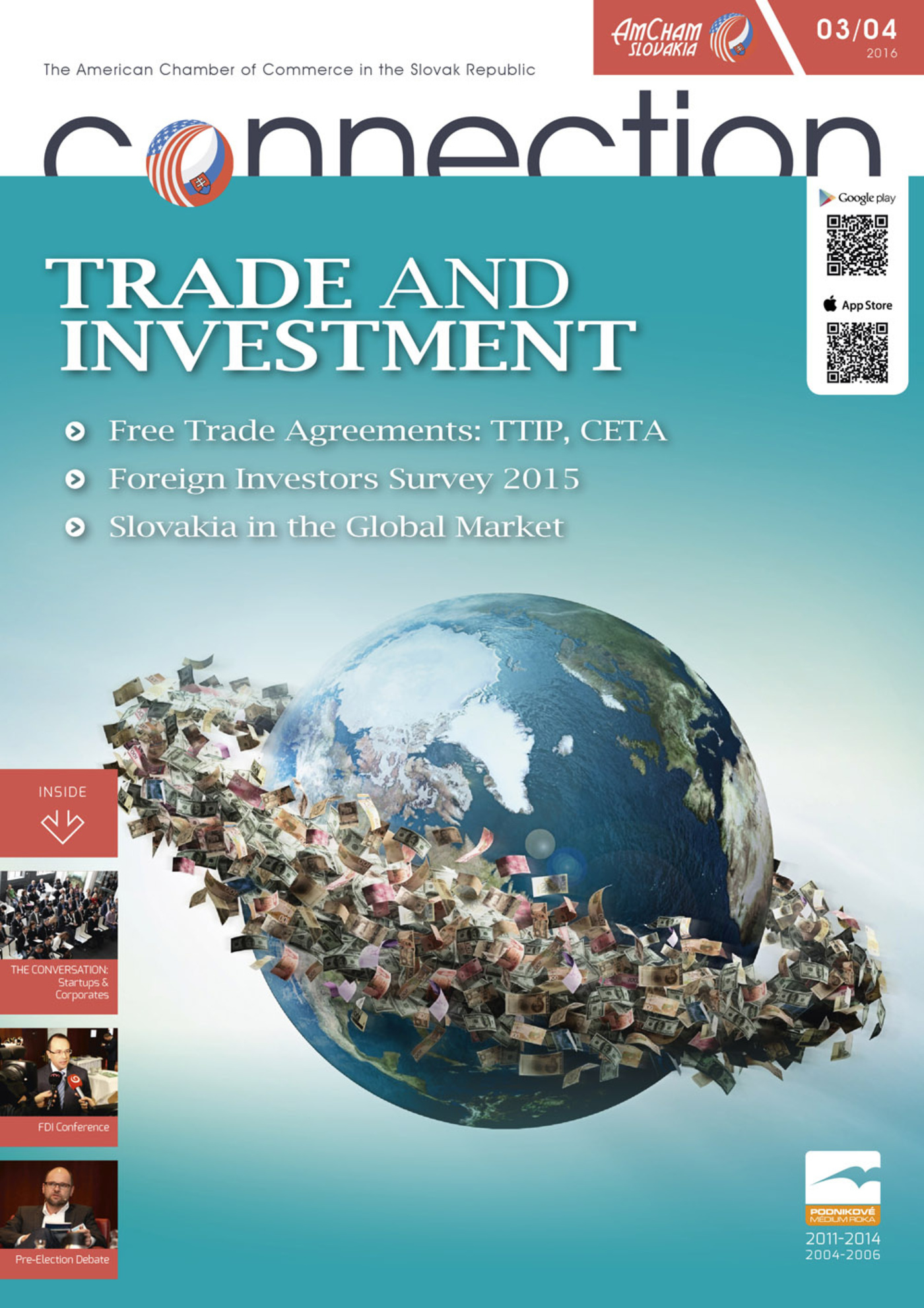SMEs, in spite of being often overlooked by policy makers, play a substantial economic and social role. In Slovakia, according to the European Commission’s 2014/2015 Annual Report on European SMEs, they create up to 71% of employment and 61% of added value. Although the country is strongly pro-export oriented and has one of the most open economies in the EU (foreign trade represented 189% of GDP in 2013), the contribution of local SMEs to Slovak export remains limited. In spite of the fact that the number of exporting SMEs has been on the rise, the share of SMEs on total export has been continually declining over the years, reaching only 26.7% in 2014. Looking specifically at transatlantic trade with the United States, there are only a few dozen Slovak SMEs exporting their products to the U.S. market, in a total value of only €1,000,000. And although 75% of Slovak companies exporting across the Atlantic are SMEs, the value of their export is just 9%, far below the EU average of 28%. So where do the obstacles lie and can TTIP be a game-changer for Slovak SMEs?
Mainly due to lack of personnel or financial resources, SMEs are generally in a much worse position than large companies when exporting across the Atlantic. Oftentimes, they lack enough information about regulations or specificities of the local market. As they operate with low profit margins, even the lowest tariff can render potential business unprofitable. This problem is further coupled by new and costly certificates, which have to be acquired for products before market launch. Let us illustrate the issue on three different sectors, all important to the Slovak economy: the automotive, the engineering and the food processing industries.
Vehicles create around 25% of all Slovak exports. This number will almost certainly further increase when the announced investment of Land Rover gets completed. As an automotive superpower with three car manufacturers, Slovakia has a massive network of supplier companies, which might benefit from TTIP either directly or indirectly through increased export of parts to countries directly trading with the United States. Mutual trade in the automotive sector is currently influenced mainly by different technical regulations. Differences in requirements, such as the height of rear-view mirrors or the placement of front lights, prevent European manufacturers from selling the same car in Europe and in the United Sates. Producing a special model for the U.S. market means increased costs, which could have been used elsewhere. Harmonizing these different approaches to safety at least to a certain extent is what TTIP is trying to achieve.
The sector of electrical and mechanical engineering, which is the second most important one in Slovak exports, is also expected to benefit from TTIP. Slovak and other European SMEs experience difficulties mainly due to different technical standards (e.g. color of cables). There are different approaches to conformity assessment procedures, resulting in unnecessary duplication of controls. In this field, TTIP aims to bring technical standards as close as possible by leaning towards the international ISO and IEC standards. In addition, SMEs will be able to find information about valid regulations easier thanks to the joint registry of technical standards publicly available under one point of contact in the EU and the United States. Furthermore, TTIP should also achieve mutual recognition of controls conducted by conformity assessment bodies, thus putting an end to duplication of inspections.
There are several Slovak SMEs active in the food processing sector, which already have some experience with exporting their products to the United States, either on their own or as part of a transnational group. Similarly to the two sectors mentioned above, Slovak food and drink producers struggle with double certifications. For instance, testing and certificates for mineral water can cost up to several thousand dollars annually. Administrative procedures are time-consuming and especially in the sector of spirits and wine, the tariff rates still remain quite high. TTIP is dealing with a range of issues and goods – from dairy products and meat to wine and spirits. Complicated administrative procedures related to cheese import will be eliminated and import tariff barriers for meat or alcoholic drinks lowered. Moreover, customs procedures should be more efficient and faster, particularly for perishable goods such as food. All in all, this opens new horizons for Slovak SMEs wishing to export.
Criticism of TTIP is often based on the claim that the deal will benefit mostly large, transnational companies. However, in reality, SMEs are those which will profit the most from a more open trade. In contrast to multinational firms, they seldomly possess sufficient resources to overcome tariff and non-tariff barriers currently in place. Consequently, many high-quality and innovative products still have not crossed the pond. TTIP can change this. Moreover, improved conditions for SMEs might also have far-reaching social consequences. As the European Commission’s research shows, activities undertaken by SMEs are typically more labor intensive than those undertaken by large enterprises. Thus, an increase in SME activity usually results in a proportionally larger increase in employment than an increase of similar magnitude in the activity of large enterprises. TTIP thus has not only the potential to be a game-changer for Slovak SMEs, it can also substantially boost regional employment – an issue that has been bothering Slovakia for quite a while.
Tomáš Bereta, Senior Account Manager, Fipra Slovakia
Erik Szedély, Account Executive, Fipra Slovakia



Follow us